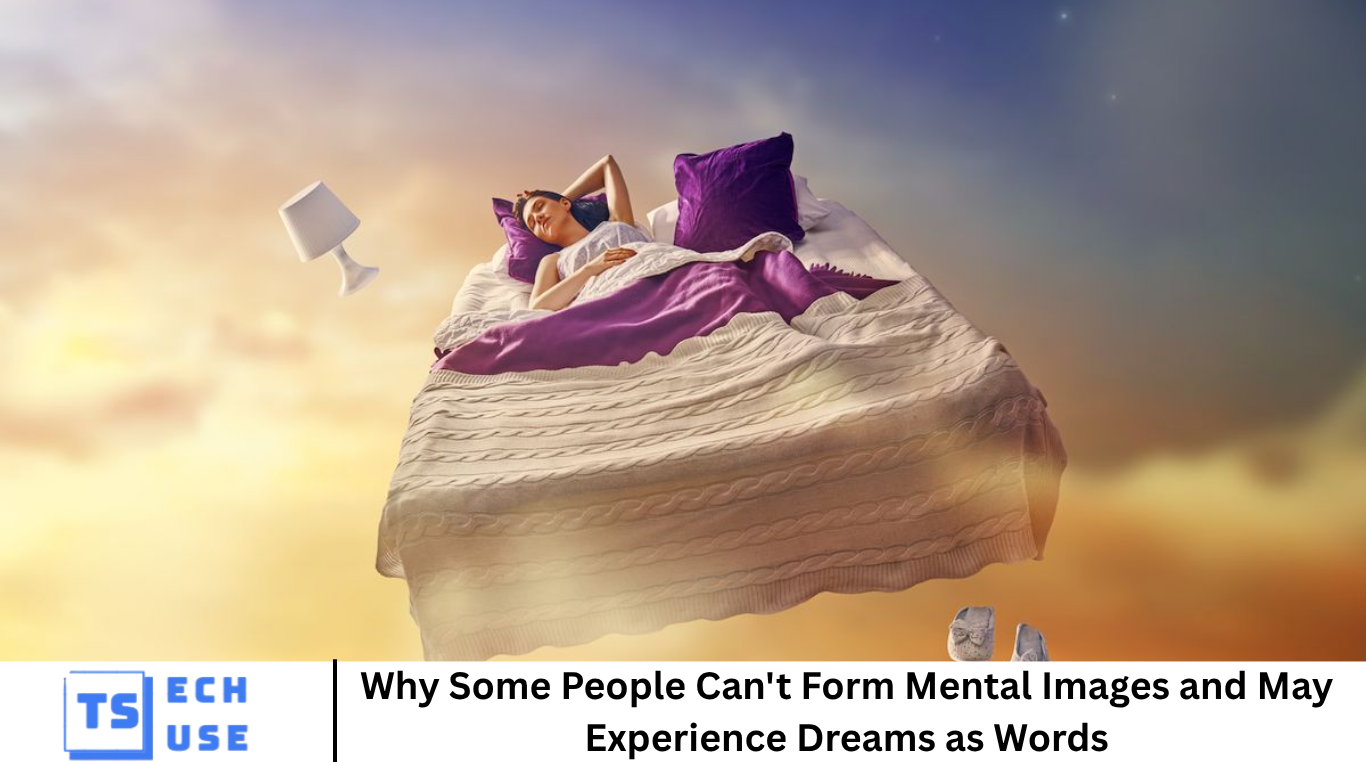Imagine being asked to picture a red apple. For most, this is a simple task, conjuring a vivid image of the fruit. However, for some individuals, this exercise is impossible. They cannot summon mental images at will. This phenomenon is known as aphantasia, a condition where the mind’s eye is blind.
Aphantasia affects approximately 2–4% of the population. While it doesn’t impair intelligence or creativity, it does alter how individuals experience the world, particularly in areas like memory, imagination, and dreams.
More Read: Understanding Why Some People Lack Mental Imagery and Experience Dreams Through Words
What Is Aphantasia?
Aphantasia is the inability to voluntarily create mental images. People with this condition cannot visualize scenes, faces, or objects in their mind’s eye. This lack of visual imagery extends to other senses for some, affecting auditory, tactile, and olfactory imagination as well.
The term “aphantasia” was coined in 2015 by Dr. Adam Zeman, a neurologist at the University of Exeter. While the condition was first described in 1880 by Sir Francis Galton, it remained largely unstudied until recent years.
Causes of Aphantasia
The exact cause of aphantasia is not fully understood. However, several factors may contribute:
- Neurological Differences: Brain imaging studies have shown that individuals with aphantasia have weaker connections between the prefrontal cortex (responsible for higher-order thinking) and the visual cortex (responsible for processing visual information).
- Genetics: Some studies suggest a genetic component, as aphantasia can run in families.
- Brain Injury or Trauma: Acquired aphantasia can result from brain injuries, strokes, or other neurological conditions that affect the brain’s ability to generate mental images.
How Aphantasia Affects Daily Life
While aphantasia doesn’t hinder cognitive abilities, it does influence various aspects of life:
- Memory: Individuals with aphantasia often have less vivid autobiographical memories. They may struggle to recall faces or specific details of past events.
- Creativity: Contrary to some beliefs, aphantasia does not preclude creativity. Many individuals with the condition excel in fields like writing, music, and science by relying on non-visual forms of thinking.
- Learning and Education: Aphantasia can impact learning strategies that rely on visualization, such as the method of loci (memory palace). However, individuals often develop alternative strategies to compensate.
Aphantasia and Dreams
One of the most intriguing aspects of aphantasia is its relationship with dreams. Despite the inability to visualize during waking hours, many individuals with aphantasia report experiencing vivid dreams. However, the content of these dreams can differ:
- Visual Dreams: Some individuals with aphantasia experience visual dreams, suggesting that the brain can generate imagery during sleep despite the inability to do so while awake.
- Non-Visual Dreams: Others report dreams composed of words, concepts, or emotions, lacking visual components altogether.
These variations highlight the complexity of the brain’s imaging capabilities and suggest that different neural mechanisms may be involved in dreaming compared to waking visualization.
Diagnosing Aphantasia
Aphantasia is typically diagnosed through self-report questionnaires, such as the Vividness of Visual Imagery Questionnaire (VVIQ). This tool assesses the clarity and vividness of mental images in various scenarios. A score below a certain threshold indicates aphantasia.
Brain imaging techniques, like functional MRI (fMRI), can also provide insights into the neural activity of individuals with aphantasia. These studies have revealed differences in brain connectivity and activity between those with and without the condition.
Living with Aphantasia
Individuals with aphantasia often adapt by developing alternative cognitive strategies. For example:
- Memory Techniques: Some rely on verbal or semantic cues rather than visual imagery to remember information.
- Creative Processes: Writers and artists with aphantasia may focus on conceptual or emotional aspects of their work, rather than visual details.
- Problem-Solving: Analytical thinking and logical reasoning can compensate for the lack of visual imagination in tasks requiring spatial reasoning.
While aphantasia presents unique challenges, many individuals lead successful and fulfilling lives, demonstrating that the ability to visualize is not a prerequisite for creativity or intelligence.
Frequently Asked Question
Can aphantasia be cured?
Currently, there is no known cure for aphantasia. However, individuals can develop coping strategies and alternative methods to manage the condition.
Does aphantasia affect intelligence?
No, aphantasia does not impact intelligence. People with aphantasia can excel in various fields, including science, art, and literature.
Can people with aphantasia dream visually?
Yes, many individuals with aphantasia report experiencing visual dreams, although the content and vividness can vary.
Is aphantasia hereditary?
There is evidence suggesting a genetic component, as aphantasia can run in families.
How is aphantasia diagnosed?
Aphantasia is diagnosed through self-report questionnaires, such as the VVIQ, and can be supported by brain imaging studies.
Can people with aphantasia visualize anything?
Some individuals with aphantasia can experience involuntary mental images, such as during dreams or under specific conditions.
Does aphantasia affect creativity?
No, many individuals with aphantasia are highly creative and have developed alternative methods to express their creativity.
Conclusion
Aphantasia offers a unique perspective on human cognition and perception. While it alters how individuals experience mental imagery, it does not diminish their capacity for creativity, memory, or intelligence. Understanding aphantasia broadens our appreciation of the diverse ways in which the human mind operates, highlighting that there is no single “normal” way to think or imagine.


